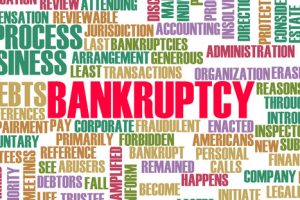Prison Defeats Eligibility For Chapter 13 Bankruptcy

An Illinois judge recently ruled that an incarcerated felon could not file Chapter 13 even though his parents agreed in writing to make the plan payments; the holding has some implications for debtors in the free world as well.
While serving time for an aggravated DUI, Tristan Durov filed Chapter 13 bankruptcy to avoid personal liability in a pending wrongful death lawsuit. With only $14 per month coming in, Mr. Durov’s income was clearly insufficient to make the plan payments, but his parents offered to make up the difference. A bankruptcy judge refused to allow this arrangement, concluding that the promise to pay was “purely gratuitous” and that the Chapter 13 debtor (or joint debtors) must make 100 percent of the plan payments.
The dismissal order specifically gave Mr. Durov the option of converting to Chapter 7.
Chapter 13 Eligibility
Chapter 13 is ideal for people who can pay their bills but feel behind due to prior unfortunate circumstances and need some time to catch up.
Despite what they say, most moneylenders make almost no effort to work with people in this situation, as low-level adverse action, like threatening letter and harassing phone calls, usually begin after only a month or two. Higher-level adverse action, such as repossession and foreclosure, follows shortly thereafter. Fortunately, the automatic stay prohibits any such action throughout the entire repayment period, in most cases.
This period lasts either three or five years, depending on the debtors’ income. So, the debtor has either 36 or 60 months to eliminate any past-due balances on secured debts like home mortgages; all the funds must come from the debtor or joint debtor. If the plan is not feasible, most trustees (people who oversee bankruptcies for the judges) give the debtors at least one or two chances to correct the problem before they dismiss the cases.
There are some nonfinancial qualifications as well. All debtors must complete a debt counseling course. Furthermore, any prior Chapter 7 must be at least four years old and any prior Chapter 13 must be at least two years old.
Chapter 7 Eligibility
Although there is no repayment plan in a liquidation bankruptcy, there is still an income requirement, in the form of the means test.
All Chapter 7 debtors must have an annual income that is below the average for that state. For a family of four in Illinois, that amount is just over $91,000; the amount changes frequently due to inflation and other factors. Special rules apply if the debtor’s income is not the same every month or if the debtor lives in an urban area like Chicago instead of a semi-rural area like Mt. Vernon.
There are some non financial hurdles as well. In addition to the credit counseling class, the most recent bankruptcy discharge, if any, must be at least six (prior Chapter 13) or eight (prior Chapter 7) years old.
Contact Experienced Lawyers
Both Chapter 7 and Chapter 13 have some eligibility requirements. For a free consultation with an experienced bankruptcy lawyer in Chicago, contact the Bentz Holguin Law Firm, LLC. After hours appointments are available.
Resource:
bna.com/incarcerated-man-not-n57982085290/


